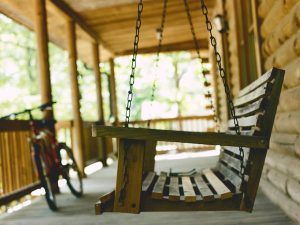In part 1 I described why a resilient economy needs be to separate from the failing capitalist juggernaut and that we need to start by finding new economic partners from without the Market.
The resilient economy is not like the single efficient global Market on which every individual depends for everything. We should rather think in terms of mutually-supportive groups that join together in larger groups when they have more specialised or capital-intensive needs. This is the structure envisaged by the Open Credit Network.
It begins with finding each other, and building trust and wealth together. Reciprocation is the component missing from all the other new economy movements; we can only unplug from the Market insofar as we can produce and consume with others around us.
Think of an economic partner as someone who produces (some of) what you consume and who consumes (some of) what you produce. It is this reciprocation with people you know, perhaps without using money, which is insulated from the Market. Only through reciprocation in production and consumption can people and groups coalesce to build resilient wealth together.
There are many ways that families, especially if they live close by, can share production and consumption to make life easier. They could start by researching plastic-free products and foods and approach the producers for bulk discounts. Other forms of cooperation might be car-sharing, cooking together, babysitting, house-sitting. Some of them will have useful skills they can all benefit from such as preparing food for the freezer, mending things, dealing with bureaucracies. And as trust builds and cooperation deepens they might end up lending each other money, insuring things together, investing together, co-owning vehicles and the like. Such groups could be considered foundational units of another economy.
This kind of cooperation is a start but it barely begins to replace the role of the Market in each family’s economy. The challenge is to meet more essential needs in the spirit of that fraternal or neighbourly cooperation than in the spirit of business, and gaining as much as you can from each transaction. But it might not be smart to sit those people down and have a serious talk with them about the future, in order to get them to do whacky projects with you. So here are a some of other ideas:
- Start making something every week like beer, bread, granola, that you can give to or exchange with anyone, and invite others to help you scale up the operation. There’s nothing wrong with selling it for money as long as that’s not your primary aim!
- Go to a farmers’ market, take one of the producers for a drink, and find out about their business and how to get involved in your spare time – maybe you can help with sales, marketing, delivery in exchange for produce which you can then consume or pass on.
- Find a veg box scheme or an organic food supplier and try to engage your neighbours in buying regularly and getting deliveries. By cooperating you can get better prices and/or better quality, and reduce shopping time.
Maybe you’ll post more ideas in the comments, below.
These simple ideas are just first steps in knowing and building trust with people. The more you do together, the more you’ll need to agree, to decide, to invest, to risk, and to share. An economy resilient to the Machine, will need to do without many of the tools and protections built in to the state and the market over hundreds of years. For example without the protection of the law an informal enterprise without limited liability would not likely survive the expense of a court case. We shall have to resolve our disputes privately until we create non-Market institutions we can trust and abide by.
From this early vantage point, the challenge of building another economy cannot be overstated, but at the same time the rewards are manifold. Trust, if we have it, is a boon to our efforts rarely to be found in capitalism, where the love of money is the only value you can depend upon. Moreover it is a pleasure to have substantial relationships and work with people we trust. Being the master of your own work is another huge motivational factor. Taking control of your food is very satisfying and could bring short- and long-term improvements in the health of your family.
Western people are not accustomed to collaboration in social groups, except perhaps in our distant cultural memories of extended families or perhaps professional guilds, but we need to be! I will conclude with a quote from Richard Bartlett, one of the founders of the renowned Enspiral organisation, a network of freelancers working together in small teams they call ‘crews’.
“People enmeshed in really great Crews are most resilient to the psychological cost of doing social change work, and therefore the most able to think and act strategically. It’s at this small scale that we decontaminate each other, recover from the individualist virus, and start to learn a new way of being together.” Microsolidarity part 2.
 About the author
About the author
Matthew Slater develops software for complementary currencies. He co-founded Community Forge, which free hosts software for collaborative credit schemes; he co-authored the Money & Society MOOC, a free masters level multidisciplinary online course. He co-drafted the Credit Commons white paper, a proposal for a global solidarity economy money system, based on mutual credit principles. Core team member of @deepadaptation. Collapsenik.






















